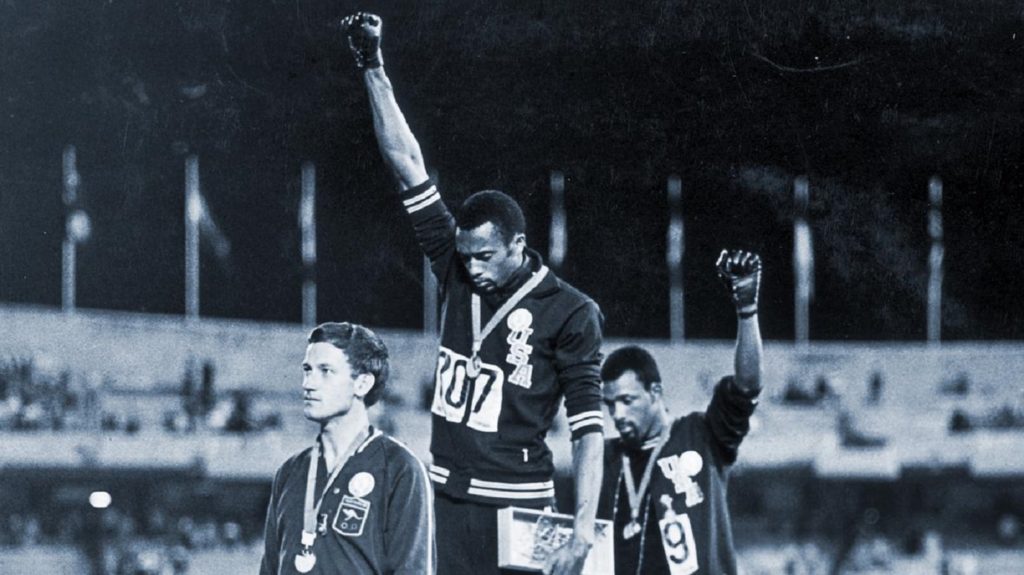As pressure builds on the International Olympic Committee to consider overturning a ban on athletes protesting at the Tokyo Games, a new survey reveals how Australian athletes feel about expressing views at the Olympics.
The survey, from the Australian Olympic Committee, comes as Rule 50.2 has prohibited Olympians from protesting in any form. The rule states: “No kind of demonstration or political, religious or racial propaganda is permitted in any Olympic sites, venues or other areas.”
80 percent of past, current, and aspiring Australian Olympians surveyed believed protests on the field of play would detract from performances or experiences of other athletes.
Asked if the Olympics should be a stage for athletes to “express their views on politics, religion, sexuality, racism, gender and other forms of discrimination”, 40.93 per cent of respondents said the Games should not be a place where athletes express their views. 39.1 per cent said it depended on the circumstances.
When asked if they would personally consider protesting on the field of play or on the podium, 30 per cent said they would still consider it – knowing they would be breaching Rule 50. This finding means that despite the ban, some Australian athletes may participate in some form of protest at the Tokyo Games, reflecting a growing trend of athletes who have taken a knee at recent sporting events.
There’s also a clear generational shift among Australian athletes, with present-day athletes more likely to believe that the Games is a platform for self-expression.
“While just over 40% of athletes more broadly felt there was no place for self-expression or protest at the Games, if you look at athletes from the 2010’s, that figure of those against falls away to just 19 percent,” AOC Athletes’ Commission Chair Steve Hooker said.
“Nevertheless, the majority that younger group felt opportunities in social media and media conferences were preferable to protest on the field of play or Olympic podium.”
In terms of discrimination on the field of play, 26 per cent of surveyed athletes believed it existed. Female athletes were more likely than men to say discrimination existed on the field of play in their sport.
In June, former Olympian Nova Peris joined the call for the ban on athletes protesting at the Games to be overturned, saying “athletes should not be silenced.” Peris was the first Indigenous Australian to win an Olympic gold medal as a member of the Hockeyroos.
“As the first torchbearer [before the Sydney Olympics] I ran bare-footed because I wanted to tell the world about Aboriginal Australia but I also wanted to tell the world that there’s a history of injustices here. That’s why I ran with no shoes on,” she told The Sydney Morning Herald at the time.
Peris has also said there should be “a black voice” on the Australian Olympic Committee’s athletes’ commission, which does not have an Indigenous member. The commission is the elected body that advises the AOC on Olympic issues from an athlete’s perspective.
“If you’re going to be serious about human equality you need to have a representation of people to have a lived experience of what it means to be looked at through the eyes of inequality,” she said.
The survey revealed that some athletes suggested they would like the AOC to provide education opportunities for athletes in relation to Indigenous history in both the Olympic Village and outside of games time.
Some recommendations have been made to the AOC Executive and Tokyo 2020 Team Executive in light of the survey. These include:
- Athletes would like access to AOC education programs pre-Games on Rule 50.2, particularly in relation to self-expression on social media and in interviews
- Athletes would like the AOC to provide education opportunities in relation to Indigenous history both in the Olympic Village and outside of games time
- Consideration should be given to the type of guidance, counselling and support the AOC would offer an Australian athlete who expresses views in a way that breaches Rule 50.2 and subsequently faces sanction for their actions
*******
Get The Sporty Wrap in your inbox, our weekly update on women in sport
*******



